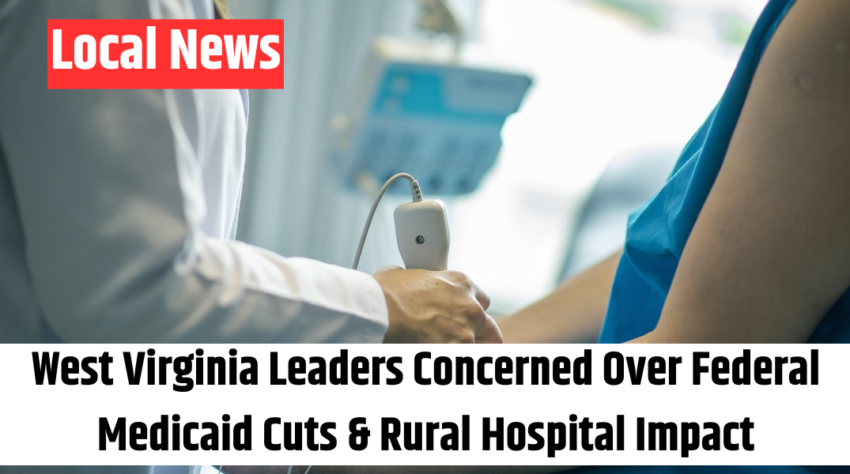CHARLESTON, WV – With possible federal reductions looming, West Virginia lawmakers are taking steps to ensure the state does not absorb additional costs for Medicaid expansion coverage.
House Deputy Speaker Matthew Rohrbach (R-Cabell) emphasized the urgency of preparing for changes in federal funding, noting that the state cannot afford to fill the financial gap if the current 90% reimbursement rate is lowered.
“This is a proactive measure to make it clear to Washington that we cannot sustain this program without federal support at its current level,” Rohrbach stated in an interview.
Medicaid Expansion and Its Role in West Virginia
Since the Affordable Care Act (ACA) expanded Medicaid eligibility in 2014, approximately 165,000 West Virginians have gained access to health coverage. The federal government currently covers 90% of the costs, with the state funding the remaining 10%. However, lawmakers worry that if the federal share is reduced, West Virginia could face an unsustainable financial burden.
If federal funding is cut, the proposed state legislation would trigger automatic disenrollment for those who qualify under Medicaid expansion—eliminating their coverage and preventing the state from covering the shortfall.
Concerns from Healthcare Advocates
Healthcare leaders and advocacy groups have strongly opposed this approach, arguing that rural hospitals and clinics rely heavily on Medicaid reimbursements to stay afloat.
Also Read – 22 States Take Legal Action Against New York in Surprise Move
Rich Sutphin, Executive Director of the West Virginia Rural Health Association, warned that reducing Medicaid coverage could have devastating consequences for the state’s rural healthcare system.
“If this bill moves forward, we could see more hospital closures and job losses in already struggling rural communities,” Sutphin said.
During a recent House Finance Committee meeting, Kelly Allen, Executive Director of the West Virginia Center on Budget & Policy, underscored the vital role Medicaid plays in keeping West Virginians insured.
“Medicaid is the backbone of our rural healthcare system. If lawmakers want to protect West Virginians, they should be urging Congress to maintain current Medicaid funding levels rather than preparing to cut people off from coverage,” Allen said.
The Federal Budget Debate and Its Impact on Medicaid
The U.S. House of Representatives has passed a budget resolution that outlines $2 trillion in spending cuts over the next decade. One major area being targeted for reductions is Medicaid, with the House Energy and Commerce Committee tasked with finding $880 billion in savings.
Rohrbach and other supporters of the trigger law argue that states should not be left with the full financial responsibility if the federal government rolls back its commitment.
“If Washington reduces its contribution, many states—including West Virginia—simply cannot afford to take on those additional costs,” Rohrbach explained. “We need to send a strong message that we won’t be forced to pick up the tab.”
Several states, including Arizona, North Carolina, Utah, and Virginia, have already passed similar trigger laws in case of federal funding reductions.
Upcoming Advocacy Efforts
Opponents of the bill are planning a press conference to voice their concerns. Scheduled speakers include:
-
Dr. Nicole Bryce, an OB-GYN resident at Charleston Area Medical Center
-
Dan Hager, of Ebenezer Medical Outreach
-
Sherri McKinney, representative of SEIU 1199
-
Rev. James Patterson, of the Partnership for African American Churches
The event, labeled the “Killing Rural Hospitals Act of 2025” press conference, aims to highlight the potential economic and healthcare consequences if Medicaid expansion is rolled back.
What’s Next?
As the debate intensifies, the future of Medicaid expansion in West Virginia remains uncertain. With the legislative session nearing its conclusion, lawmakers, healthcare providers, and advocates will continue to push for solutions that balance fiscal responsibility with the need to protect essential healthcare services for thousands of residents .
